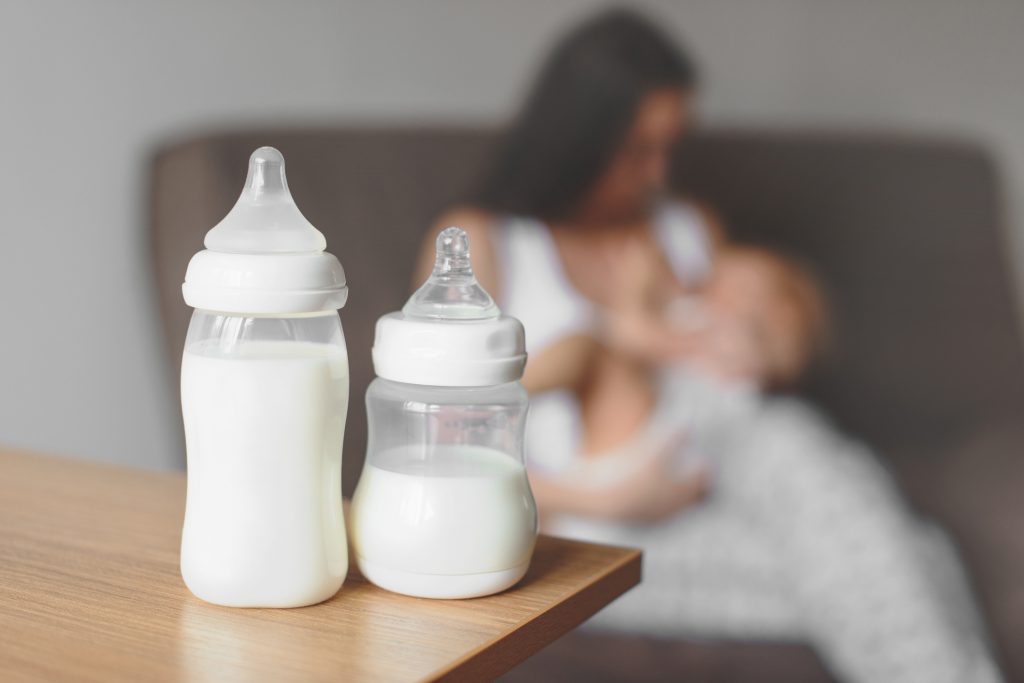If you’re a mom, you know that your heart doubles in size with love after your baby is born. But did you know that breastfeeding your baby can have a positive impact on your cardiovascular health? A study published in the Journal of the American Heart Association (JAHA) shows that women who breastfeed can reduce their cardiovascular disease and stroke risk.
The study reviewed more than one million women worldwide who have breastfed at one point in their lives. Significant findings for breastfeeding women versus women who have never breastfed include:
· 11% reduction in cardiovascular events.
· 12% reduction in stroke events.
· 14% reduction in coronary heart disease.
· 17% reduction in fatal cardiovascular events.
The study makes a definitive connection between breastfeeding and heart health, demonstrating that beyond its benefits for the baby, breastfeeding benefits moms as well.
Breastfeeding Benefits for Mom and Baby
The American Academy of Pediatrics (AAP) recommends that mothers exclusively breastfeed their baby for at least the first six months. Breastfeeding is a significant commitment – and if it’s what you choose to do, St. Elizabeth is here to offer support.
“Breastmilk is nutrient-rich and custom-designed to fit the needs of your baby – it provides added protection from viruses and illness too,” says Valeria Huff, RN, IBCLC a lactation consultant with St. Elizabeth Healthcare. “For a long time, we’ve known about the health benefits of breastfeeding for children,” says Huff. Breastfed children have fewer respiratory infections and a lower risk of death from infectious diseases. “Moms should be encouraged to know that by breastfeeding, they not only provide optimal nutrition while supporting the health of their baby but also they are improving their health by lowering their risk of heart disease.”
In addition to cardiovascular benefits, studies show that breastfeeding moms have a reduced risk of breast, ovarian, endometrial, and thyroid cancers. Moms who have breastfed their babies also have a decreased risk of type 2 diabetes, hypertension, and autoimmune diseases like rheumatoid arthritis.
Heart Disease and Women
“We’re all working together to improve heart health, and the recent breastfeeding study is a great example of how science can lead the way in making healthy choices for your family,” says Deepthi Mosali, MD, a Cardiologist with the Florence Wormald Heart & Vascular Institute at St. Elizabeth. “If you’re considering breastfeeding, know that the health benefits are significant for you and your baby.”
Breastfeeding Moms Can Donate Milk
At the St. Elizabeth Family Birth Center, we’re passionate about supporting new moms who choose to breastfeed. For any new mom who is unable to breastfeed and wants to offer their baby the tremendous benefits of human milk, we’ve partnered with The Milk Bank, a non-profit organization committed to providing babies with human milk. Because breast milk provides optimal nutrition for newborns and infants and is critically important to preterm newborns, a breastfeeding mother who meets specific criteria can donate milk. If you are interested in becoming a donor and you meet the following criteria, please consider donating your breastmilk:
· Currently or recently finished lactating.
· Have surplus milk.
· In good health.
· Only taking approved medications.
· Willing to donate at least 100 ounces of milk by your baby’s second birthday.
· Willing to undergo blood tests (paid for by The Milk Bank).
To donate to the St. Elizabeth Milk Bank, please call the lactation office at (859) 301-2631.
Looking for Support? St. Elizabeth is Right Here.
Heart Care: To schedule an appointment with a cardiologist at the St. Elizabeth Heart & Vascular Institute, please call (859) 287-3045.
Breastfeeding Support: If you need support with breastfeeding, our lactation consultants are available at (859) 301-2631. Visit the St. Elizabeth event calendar to enroll in a breastfeeding class.

